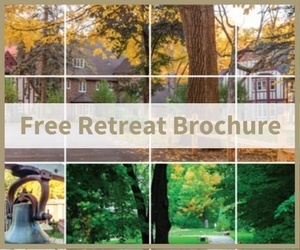
Alcoholism is a disease of self-deception. We can be taking all twelve steps, and still avoid the spiritual growth of the program. “Remember” the Big Book says, “that we deal with alcohol---cunning, baffling, and powerful! Without help it is too much for us. But there is One who has all power—that One is God. May you find Him now!” (p.58-59)
We can be in a routine of attending step meetings, or going through the steps with a sponsor, and still be neither finding God nor being transformed by the power of God. My religion consists of being a Methodist minister. The founder of the Methodist church, John Wesley, wrote in the 1700’s that his fear was not that the Methodist church would disappear, but that it would lose its passion, that it would “retain the form of Christianity, while denying the power thereof.”That’s our risk in A.A.: that we will retain the form of our program, while denying ourselves the power of God to transform our lives. This is not a “don’t drink” program. This is a program to change everything about our lives so that we have the opportunity for joy, happiness, and love.
How can we evaluate our own sobriety? The usual answer is through the steps: Steps four, five, and ten. These are certainly valuable. Four and Five provide the heavy lifting to, as the Big Book says, “clear away the wreckage of your past” (p.164) Step Ten is crucial to clean house on a daily basis.
Two summers ago, I did a tenth step that revealed that although I no longer drove like a jerk, I still felt like driving like a jerk. I was still angry in traffic, even though I no longer expressed it. As a result, I applied for Minnesota license plates, BB P 25, by which I mean “Big Book, page 25”. That page talks about the great fact of our spiritual awakening. When I got the plates, the feelings of anger in traffic left me, so the tenth step inventory worked.
I have two other ideas for evaluating our own sobriety. The first is to ask our spouse or partner if our sobriety is reflected in our relationship with them. Are we practicing our program at home? Long ago I went to an AA men’s meeting in northern New Hampshire. It was blunt. Newcomers didn’t get to talk for 90 days. After 90 days, the newcomer was the speaker, to tell about his recovery. For the newcomer’s one-year anniversary, he received his medallion from his wife or girlfriend, and it was up to her to tell about how his recovery was reflected in their relationship at one year of sobriety. It was a lot like a final exam in recovery. It’s a good question: Does our recovery make our most intimate relationship truly loving? If not, why not?
Another way to evaluate our recovery is to consider the ratio of gratitude to resentment in our lives. For twenty years, I worked at Hazelden with Northwest Airlines pilots and the Federal Aviation Administration’s recovery program for alcoholic pilots. The pilots had a one-hour psychiatric examination with one question: “So tell me about your life.” The psychiatrist was not listening to the facts. The psychiatrist was listening for the presence of gratitude and the absence of resentment. When I heard that I thought “Aha! That’s a great measure of recovery! How much gratitude do I have and how much resentment?”
Early in recovery, when I was complaining to my first sponsor about my resentments, he told me to make a gratitude list. Then I had one more resentment: my sponsor and his stupid list. He was right. The treatment for resentments is gratitude, and I need a way of life that is filled with gratitude.
We can evaluate our own sobriety with a quick check of our own gratitude, and by asking those closest to us if our sobriety is making our relationships with them truly loving.
John MacDougall is the Spiritual Care Coordinator at The Retreat.
His book, “Being Sober and Becoming Happy” is available from Amazon.com





